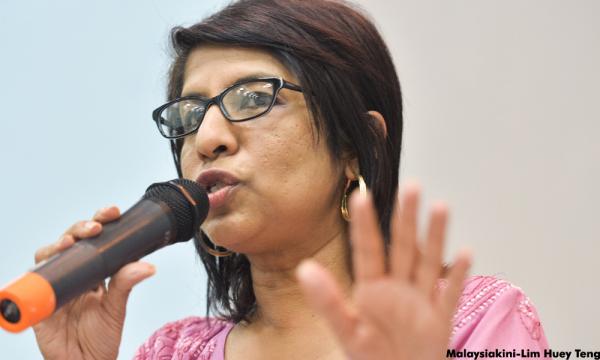The Centre to Combat Corruption and Cronyism (C4) is disappointed to learn that the High Court has upheld one of the convictions in connection with a charge under the Official Secrets Act (OSA) and 18-month prison sentence against MP Rafizi Ramli. Rafizi was found guilty under the OSA for disseminating the Auditor-General's Report on the 1MDB corruption scandal.
The decision by the High Court is a regressive step backward as it seriously undermines the importance of safeguarding the right to freedom of information and the urgent need to check the continued application of the draconian OSA, which has been arbitrarily used to mask corrupt practices and obstruct the public from accessing pertinent information related to matters that are of public interest.
Over the 45 years the OSA has been in force, we have witnessed how the law has been used as an effective means of ensuring that information on government is kept secret. The OSA acts as a deterrent, given its broad-spectrum definitions, strict liability offences, and extensive enforcement powers that create culpability even when there is no criminal intent or nexus.
It is also important to note that the OSA does not include a ‘harm test’ or public interest exceptions – principles which are important to safeguard public interest and prevent abuse. The arbitrariness of the OSA is compounded by the absence of provisions allowing for judicial review. The arbitrary nature of the OSA and the absence of oversight mechanisms, therefore, shield the government from public scrutiny and accountability, particularly in matters of public interest such as corruption and abuse of power.
As a member of Parliament, Rafizi has a duty to protect and uphold the public interest by taking all necessary steps to ensure that the principles of transparency and accountability are upheld. The act of exposing documents related to the 1MDB corruption scandal involving massive theft of public funds was done to safeguard public interest and therefore, should be protected and not be treated as a crime.
C4 emphasises that using the OSA to criminalise whistleblowers who expose corruption and mismanagement to the public promotes an environment that breeds corruption, primarily because secrecy allows for cases to be squashed without an explanation.
C4 reiterates that the Auditor-General’s report on 1MDB should never have been kept secret as the allegations of corruption surrounding 1MDB are serious allegations that ought to be made public and investigated transparently. This is in line with Malaysia’s international obligation under article 13(1)(b) of the United Nations Convention against Corruption (UNCAC), which Malaysia signed in 2003 and ratified in 2008. Article 13(1)(b) of the UNCAC requires the State Party to ensure that the public has effective access to information.
In light of the foregoing, C4 urges the conviction against Rafizi be overturned and the OSA be immediately reviewed along with a freedom of information act in place.
Cynthia Gabriel is the Executive Director of the The Centre to Combat Corruption and Cronyism (C4).


